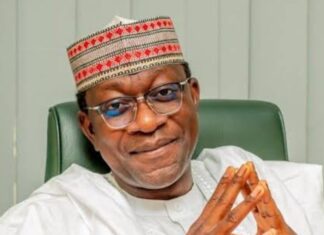Elections offer voters the platform to make vital choices. Irrespective of its scope, whether local or national, elections give voters the chance to reflect on the issues which really matter to them and make a decision on which candidate to support.
In a democracy, election campaigns, where candidates make attempts to persuade voters to support them, precede most elections. Campaigns present a windowpane for voters to study, discover and choose the candidates that truly represent their positions on critical issues that affect their future. Ideally, campaigns are always very critical to the final outcome of elections. In advanced democracies, voters’ preferences at polls are usually influenced by the performances of candidates during campaigns.
But do campaigns really sway voters in our nation? Historically, electioneering campaigns in Nigeria do not usually address major issues that border on the interests, welfare and security of the people. It, therefore, often leaves the voter with little or no premise to determine who usually gets his votes. Rather than address very germane issues, campaigns in our climes, more often than not, are characterised by name-calling, mudslinging, thuggery, hooliganism, maiming and killing. And whenever the contestants choose to address issues, they often limit the scope of discourse to the usually divisive lines of religion, ethnicity and tribal sentiments.
Characteristically, as the all-important electioneering year 2015 approaches, it is evident that nothing has really changed in terms of the style and pattern of political parties towards political campaigns. The incessant clamour by the media, civil society organisations, the academia, electoral monitoring groups and other related bodies for aspirants and political parties to run issue-based campaigns, seems to be yielding very little or no result. On the contrary, what pervades the polity is the usually needless acrimony that unnecessarily heats up the political atmosphere. From Sokoto to Maiduguri, Jos to Minna, Port Harcourt to Benin City and Ibadan to Ado Ekiti, there is palpable tension, occasioned by unhealthy political happenings, almost everywhere. It beats one’s imagination that those that aspire to lead us often resort to tussles rather than concentrating on salient national issues that would engender socio-political and economic growth. Why, for instance, in the 21st century, should maiming and killing become campaign strategies? Why should arson be a technique for political advocacy?
Turning electioneering into a tug of war is a slap on the face of the electorate. The voters deserve much more respect. They deserve more than the blabbing that lacks substance which are most often erroneously taken for electioneering by the contestants. It is this aberration that is partly responsible for the predominance of voters’ apathy in the country. Most voters, rightly or wrongly, usually conclude that since the major issues that directly have significant bearing on their daily livings are not often extensively discussed by politicians during campaigns, they would rather stay away from the polls.
Without a doubt, the power sector remains a major driver of the economy. With a stable power supply, there would be more jobs and the economy would become more prosperous. Therefore, considering the centrality of power to the economic well-being of the people, presidential aspirants must intimate the electorate with a comprehensive and realistic blueprint on how they hope to transform the power sector.
Education, security, public health, job creation, infrastructure development and the stabilisation of the economy, among others, are some of the critical issues that those aspiring for public offices at the national level need to dwell on during their electoral campaigns.
This process is not restricted to those seeking political offices at the national level. It should go for those aspiring to lead at the other tiers of government. In view of the dwindling oil revenue, it is important, for instance, for governorship aspirants to explain to the electorate how they hope to generate the needed fund to execute their programmes. It is not enough for a governorship aspirant, whose state’s total monthly expenditure surpasses total monthly income, to promise heaven on earth without making available his funding strategy. Most often than not, such aspirants, having secured electoral victory, usually turn round to justify their inability to deliver on electoral promises on lack of fund.
Having practised democracy for 14 unbroken years, it is time to focus on getting it right. We should no longer hide under the usual pretext of a ‘nascent democracy’ to do things in crude fashion. This is the time to get it right. As we march towards 2015 general elections, all stakeholders must insist on getting the various political aspirants and political parties do things correctly. It is criminal to stand by and watch while a significant few continues to hold the nation to ransom through unethical political conduct. In the words of African-American human rights activist, Martin Luther King Jr.: “Our lives begin to end, the day we become silent on things that matter.”
• Ogunbiyi is of the Features Unit, Ministry of Information and Strategy, Alausa, Ikeja.













